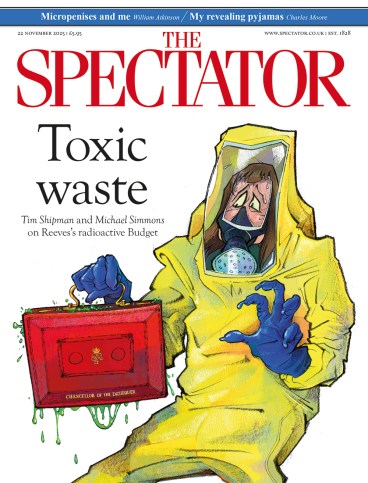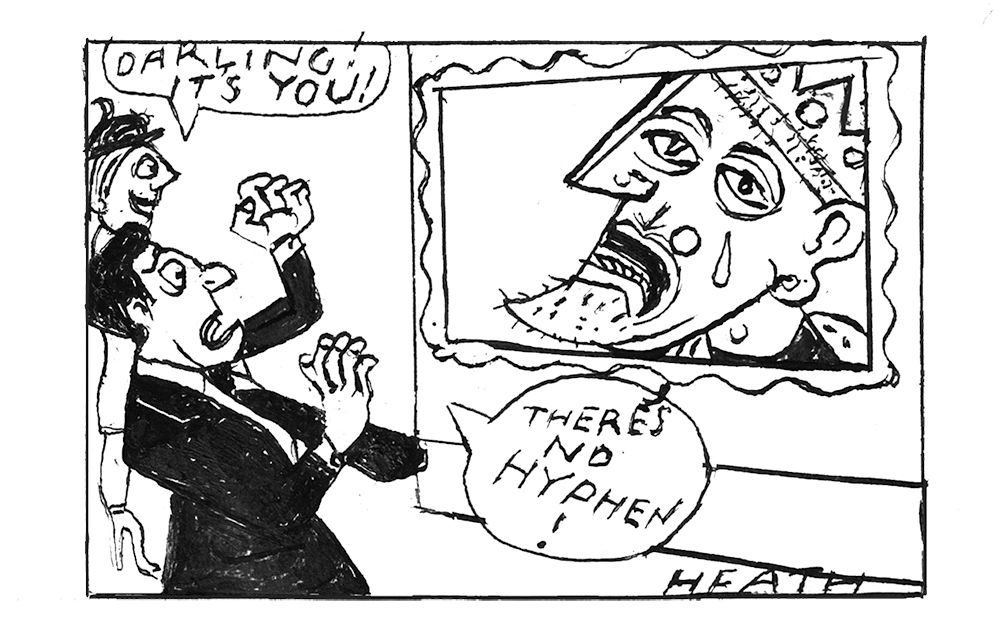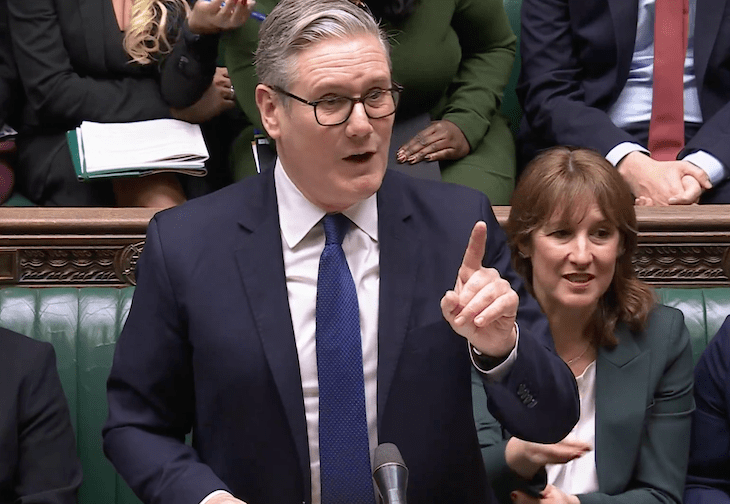
When Buckingham Palace announced that its errant prince, Andrew, would be known as boring old Andrew Mountbatten Windsor, some surprise arose at the initial omission of the hyphen from his surname. The hyphen is, unlike King Lear’s whoreson zed, a necessary thing; without it, names float, unmoored, unsure whether they are attached to first name or surname.
The hyphen, despite Lord Tennyson’s ‘idiotic’ hatred of them in his younger years, is a bringer of joy. It joins disparate parts, meaning, as it does, ‘under one’, from the Greek ‘huph’ hen’. It is the most comforting of punctuation marks, despite its ephemerality, slipping, fawn-like, in and out of usage. Who now writes mantle-piece or black-berries? This is a great sadness; more so is a general confusion with the en dash or em dash. It is not related to these; their purpose is to separate.
Consider the hyphen, and the difference between canned-baby food and canned baby-food. Some hyphens surprise – have you looked recently at the title page of Moby-Dick? (Nobody knows where the Moby came from.)
This most useful of marks was first written about by Dionysius Thrax in his treatise The Art of Grammar. Back then, it resembled a smile, or a bracket having a lie-down. Its original use was prosodic, intended to show where two words or parts of words should be read out loud together. So revered was Dionysius that his grammar book was treated almost as Holy Writ. When you use a hyphen, you are near-sacred.
Over the years, its typographical form became sturdier, more direct. Puritans dubbed their children Praise-God, Fly-fornication and Jesus-Christ-came-into-the-world-to-save. And for centuries, the hyphenated surname screamed wealth and power, denoting a descent, through the female line, from a heraldic heiress. Witness the Spencer-Churchills, whose name boasts a line to both John Churchill, the 1st Duke of Marlborough, and to the ancient Spencers. The Dukes of Buckingham were Temple-Nugent-Brydges-Chandos-Grenville, which must have been a pain to spell out on the telephone. These days, though, a double–barrelled surname is no longer a sign that you clank around dropping silver spoons.
Those who wish that William Shakespeare’s plays were written by someone else point to the occasional use of a hyphen in his printed surname, as on the title page of King Lear, where he is Shake-speare. This, they erroneously believe, points to a pseudonym, citing Martin Mar-Prelate, a pseudonymous preacher. Alas for them, the preacher’s name also appears, just as often, as Martin Marprelate. The reason for Will’s hyphen is prosaic: it is simply doing its gentle, dogged duty, bringing together two parts of his name that had to be separated to keep the ‘k’ and the long ‘s’ from clashing in the printer’s case. Bishop Nicholas Break-spear is often similarly hyphenated, as are Arm-strong and Old-castle, and I don’t think anyone believes someone else was pretending to be the bishop.
Could, then, the palace’s new insistence on the hyphen in Mountbatten-Windsor be a delicate hint towards reconciliation in the family? At the very least, it gives due weight to Prince Philip, who felt like an amoeba because he couldn’t pass down his surname. The hyphen points to unity. And in these strange times, we could do with a bit more of that. Hip-hooray, then, for the hyphen!







Comments